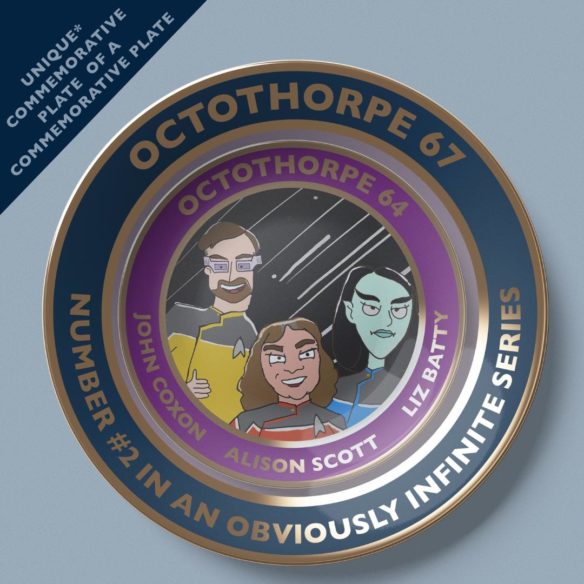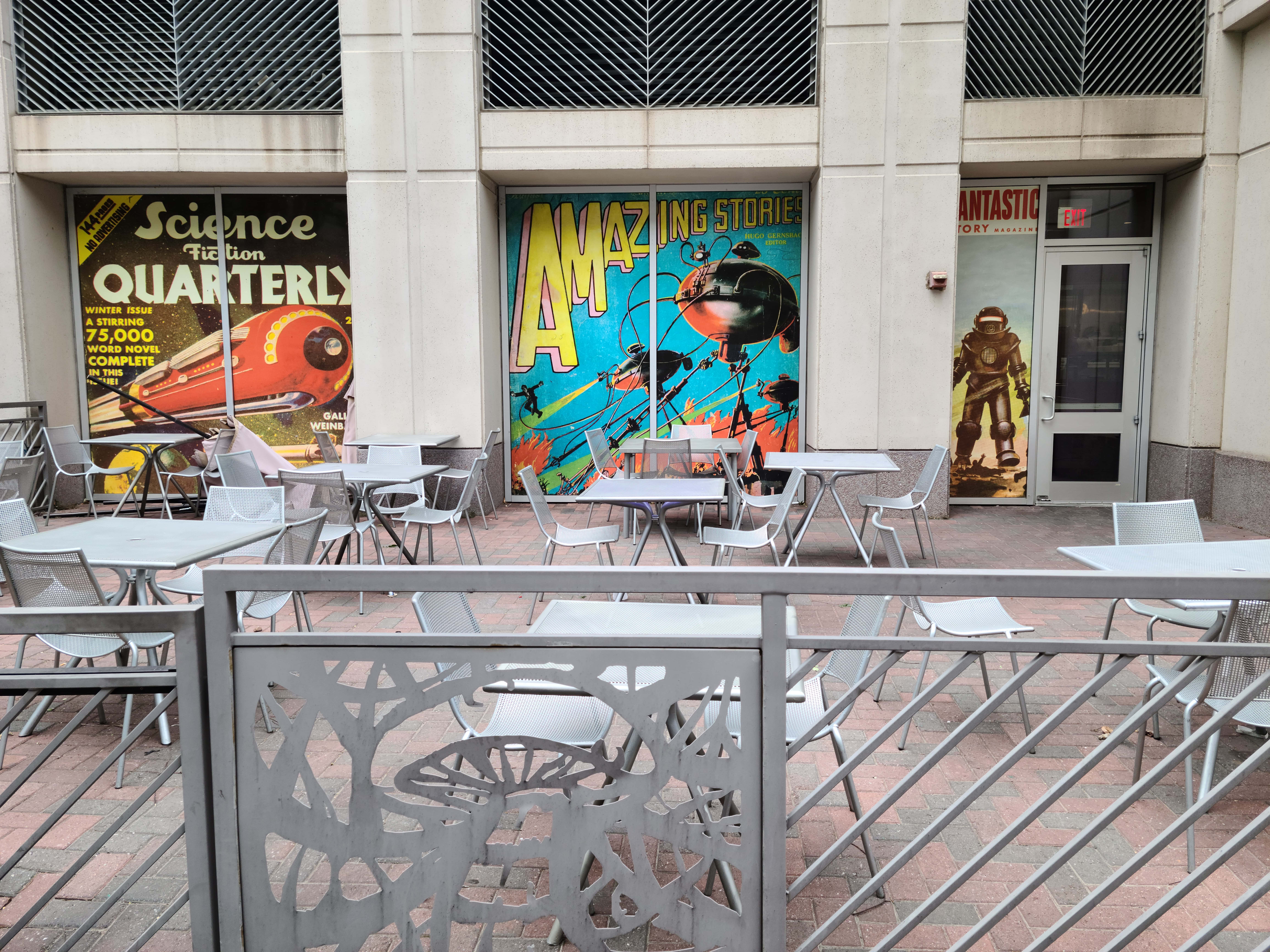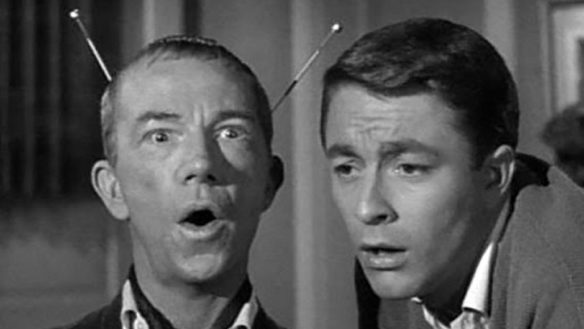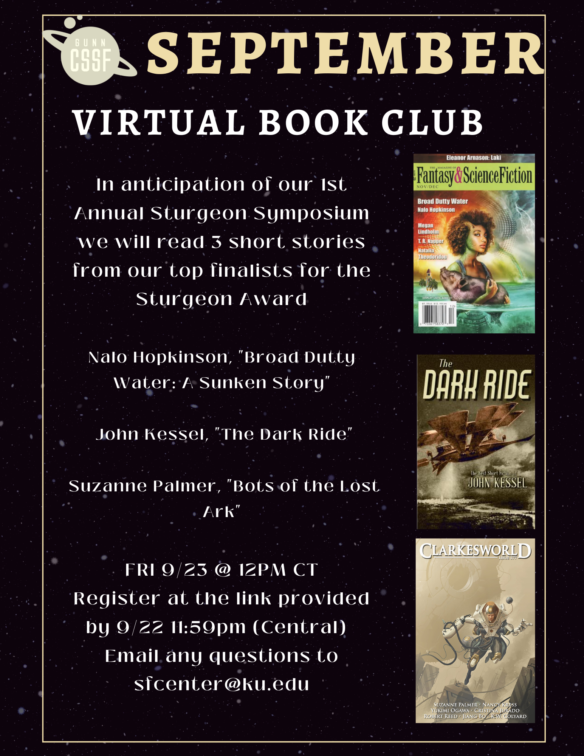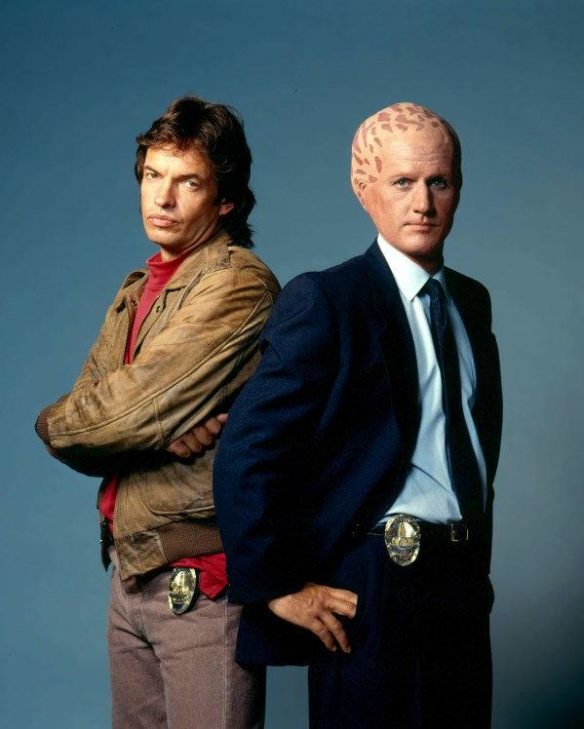(1) STURGEON AWARD NEWS. The 2025 finalists for the Theodore Sturgeon Memorial Award for the best short science fiction story have been selected. File 770 has the list here: “Theodore A. Sturgeon Memorial Award 2025 Finalists”.
(2) LUCAS MUSEUM, DUE TO OPEN IN 2026, CUTS STAFF. “Lucas Museum lays off staff in Los Angeles one year before opening” reports the San Francisco Chronicle.
The Lucas Museum of Narrative Art in Los Angeles — the $1 billion institution founded by “Star Wars” filmmaker George Lucas and his wife, Mellody Hobson — has laid off 14% of its full-time staff, a year ahead of its scheduled opening in 2026.
Fifteen full-time employees — many from the education and public programming departments — were let go last week, along with seven part-time, on-call workers.
The museum said the cuts were part of a “necessary shift of the institution’s focus” to ensure its timely debut in Exposition Park.
“It is a tremendously difficult decision to reorganize roles and to eliminate staff, but the restructure will allow the museum’s teams to work more efficiently to bring the museum to life for the public,” the institution confirmed in a statement to the Chronicle. “ The museum will also continue hiring new roles in strategic operational areas in anticipation of the 2026 opening.”
Among those laid off was Bernardo Rondeau, curator of film programs, who was notified while attending the Cannes Film Festival.
The move follows the February departure of director and CEO Sandra Jackson-Dumont, whose role was divided between Lucas, now overseeing content, and Jim Gianopulos, the former chairman of 20th Century Fox and Paramount Pictures, serving as interim CEO….

(3) GRRM WILL PRODUCE NEW WALDROP ADAPTATION. George R. R. Martin has signed on with Lion Forge Entertainment to adapt Howard Waldrop’s A Dozen Tough Jobs into an adult animated feature film, The Hollywood Reporter can exclusively reveal.
The renowned author will produce the project, a reimagining of the Greek classic story of the 12 labors of Hercules. A Dozen Tough Jobs transports the mythic tale to 1920s Mississippi, where Hercules is re-envisioned as a former sharecropper fighting to regain his freedom…
… Joe R. Lansdale (Bubba Ho-Tep, Hap & Leonard) is writing the screenplay. French animation studio Blue Spirit, the Emmy-winning studio behind Netflix’s Blue Eye Samurai, will provide animation services for the film under Lion Forge Animation….
(4) JIM BUTCHER Q&A. “14 Million Books Later, Jim Butcher Thinks His Wizard Detective Needs a Hug” says the New York Times. (Interview is behind a paywall.)
… Depression, which he had struggled with for much of his life, was deadening his days. His marriage was fraying. The charming raconteur, telling jokes to hundreds of fans on the science fiction and fantasy convention circuit, belied a man in crisis. So, he made a decision to end things.
As the deadline for his next book loomed, Butcher took two bottles of pills that he’d been using to treat chronic migraines and braced for the worst. He recalled feeling terribly sick for 36 hours. But he survived.
“I am really lucky to be here,” Butcher said quietly, as his 7-year-old pit bull, Brutus — named for an earth spirit in one of his books — dozed next to him on the couch.
Afterward, he thought about what his death might have done to his two sons, James (a novelist himself) and Dylan. He felt he needed to “own up to the consequences of my choice, and what could have happened if I hadn’t just been very fortunate.”
The result was the next installment in the series, “Ghost Story.” The book followed Harry Dresden’s ghost as he tried to solve his own murder, observing the ripple effects of his death “It’s a Wonderful Life”-style. It was the first in the series that Butcher didn’t plan out chapter by chapter ahead of time.
Butcher hasn’t opened up publicly about his mental health difficulties until recently, and he’s still reluctant to discuss them. He has been divorced twice, separations that have taken a toll (though he is newly engaged). Sowards said that there was a period where she wasn’t sure when she was going to get another book from him.
“We were able to be patient, and we supported him,” she said.
For lunch, Butcher sears me a steak on the stovetop, not unlike the typical meal that McAnally, the taciturn bartender from his books, would serve up. As Butcher carefully glazes the meat with a heart-healthy balsamic, I suggest that talking to a reporter is probably not great for his blood pressure.
“I mean, I debated whether or not to do this interview,” Butcher said, after adding garlic powder.
Stepping outside into the brisk, pine-scented air, he tells me that talking about his mental health was motivated, in part, by an interaction he had with a fan. At a book signing, he met a young man carrying a printout of writing advice Butcher had published on his LiveJournal. He autographed it and offered the fan encouragement about his own writing.
Butcher thought little of it at the time. But afterward, he said, the fan got in touch to tell Butcher that he had been prepared to kill himself, and that the writer’s words of support helped him decide to keep going. Since then, the two have struck up a friendship.
“I’ve talked to other young men who’ve had the same issues,” Butcher said. “I say, ‘You’re feeling overwhelmed. You need to make your world a bit smaller for a while. Set out some reasonable goals for yourself, get up in the morning, get the bed made, get the kitchen cleaned up, make sure your house looks nice.’”…
(5) IMAGINARY PAPERS. Arizona State University’s Center for Science and the Imagination has published the latest issue of Imaginary Papers, their quarterly newsletter on science fiction worldbuilding, futures thinking, and imagination.
In this issue, Anna Maria Grzybowska writes about Endling: Extinction is Forever, a 2022 video game exploring environmental crisis and nonhuman agency; Fitz Madrid explores psychedelic tendencies in speculative fiction, with particular attention to Philip K. Dick’s 1969 novel Ubik; and Ari Brin reports on an anthology of rediscovered stories by nineteenth-century science fiction pioneer Robert Duncan Milne.

(6) TODAY’S DAY.

(7) DISCWORLD REREAD. Christopher Lockett continues his series with “Discworld Reread #2: Equal Rites”.
…In Equal Rites (1987), we meet the character who is, to my mind, Sir Terry’s greatest achievement. I suppose everybody has their favourites, and there are definitely a good number of characters crowding the top tier. But for me, Esmerelda “Granny” Weatherwax is the apex.
Much like The Colour of Magic and The Light Fantastic, Equal Rites is set in a Discworld that is still under construction—the shape of it identifiable in the unformed clay, which will eventually take more precise form with each sculpting session. One such refinement we already see at work is the way in which this novel’s satire is more substantive: not just taking the piss of fantasy’s tired and formulaic conventions, but pointing to the ways in which some of those conventions are reflective of broader social considerations.
Not to put too fine a point on it, but Equal Rites is very much a feminist novel. As the title’s pun might suggest … and as the opening paragraphs make clear, in case you weren’t paying attention:
“This is a story about magic and where it goes and perhaps more importantly where it comes from and why, although it doesn’t pretend to answer all or any of these questions.
“It may, however, help to explain why Gandalf never got married and why Merlin was a man. Because this is also a story about sex, although probably not in the athletic, tumbling, count-the-legs-and-divide-by-two sense unless the characters get totally beyond the author’s control. They might.
“However, it is primarily a story about a world. Here it comes now. Watch closely, the special effects are quite expensive.” (11)
A novel about magic. And sex, though probably not in the rumpy-bumpy sense of the term—which means sex in the sense of gender, which further means that, should it come under the scrutiny of the current U.S. regime, it might find itself disappeared, because D.E.I….
(8) MAKING A COUNT. “WHAT THE HELL ARE PEOPLE DOING?” asks Max Comperatore, a software developer/prompt engineer based in Argentina. His site delivers “live-ish” estimates of what the human race is doing right now, from sleeping to warfare, restroom use, and intimacy. (It doesn’t deal with really small numbers, like how many are reading File 770…)
The Changelog includes – “Fixed ‘Intimacy’ count to always be an even number.”
(9) LIPSYNCH BY AI. “What if Making Cartoons Becomes 90% Cheaper?” asks the New York Times (behind a paywall).
“Fear not! For I shall lead ye to riches beyond your wildest dreams!”
Inside a tiny recording booth in downtown Los Angeles, John Peck waited for a verdict from the voice-over engineer: Did the line sound pirate-y enough?
Try again, the engineer suggested, perhaps with more throaty emphasis on “wildest.” It might make the animated character Mr. Peck was voicing — a buccaneer with a peg leg — a tiny bit funnier.
Mr. Peck, 33, cleared his throat and gave it a whirl, prompting chuckles from the production team. A couple of clicks on a laptop later, and an artificial intelligence tool synced Mr. Peck’s voice with a cartoon pirate’s mouth movements. The character was destined for an episode of “StEvEn & Parker,” a YouTube series about rapscallion brothers that attracts 30 million unique viewers weekly.
Just a few years ago, lip-syncing a minute of animation could take up to four hours. An animator would listen to an audio track and laboriously adjust character mouths frame by frame. But Mr. Peck’s one-minute scene took 15 minutes for the A.I. tool to sync, including time spent by an artist to refine a few spots by hand.
Toonstar, the start-up behind “StEvEn & Parker,” uses A.I. throughout the production process — from honing story lines to generating imagery to dubbing dialogue for overseas audiences. “By leaning into the technology, we can make full episodes 80 percent faster and 90 percent cheaper than industry norms,” said John Attanasio, a Toonstar founder.
“This is how you build the next generation of hot intellectual property,” Mr. Attanasio added excitedly…
(10) COMICS SECTION.
- 1 and Done remembers the moment dinos were doomed.
- Brilliant Mind of Edison Lee gives an underappreciated recommendation.
- Why Dinosaur Comics advises using a pseudonym.
- F Minus has a working jetpack and still gets complaints.
- Nancy introduces an extreme science fair robot.
- Off the Mark deduces Yoda’s password.
- Saturday Morning Breakfast Cereal leads alien invaders to the secret.
(11) TURING PAPERS TO AUCTION. [Item by Steven French.] The Guardian reports“Alan Turing papers saved from shredder could fetch £150,000”. However, although the thesis is signed, the other papers are just off prints and if Filers would rather not pay £40-60,000, Turing’s foundational paper “On Computable Numbers” can be downloaded here (for free).
Widely considered the father of theoretical computer science, Alan Turing’s influence on modern life continues to be felt in the age of artificial intelligence. But despite this legacy, a cache of his most important papers was nearly shredded – only to be saved at the last minute when their significance was recognised at a family event.
At auction next month, the papers are expected to sell for as much as £150,000 in 13 separate lots.
Among the collection is the wartime codebreaker’s personal signed copy of his 1938 PhD dissertation, Systems of Logic Based on Ordinals, valued at between £40,000 to £60,000.
Also featured is his paper On Computable Numbers, also known as Turing’s proof, which introduced the world to the idea of a universal computing machine in 1936. It has been described as the first programming manual of the computer age and also has a guide price of £40,000 to £60,000….
(12) DONE WITH NO PUBLIC ANNOUNCEMENT. “Google Decided Against Offering Publishers Options in AI Search” reports Livemint.
While using web site data to build a Google Search topped with artificial intelligence-generated answers, an Alphabet Inc. executive acknowledged in an internal document that there was an alternative way to do things: They could ask web publishers for permission, or let them directly opt out of being included.
But giving publishers a choice would make training AI models in search too complicated, the company concludes in the document, which was unearthed in the company’s search antitrust trial. It said Google had a “hard red line” and would require all publishers who wanted their content to show up in the search page to also be used to feed AI features. Instead of giving options, Google decided to “silently update,” with “no public announcement” about how they were using publishers’ data, according to the document, written by Chetna Bindra, a product management executive at Google Search. “Do what we say, say what we do, but carefully.”
Site owners that rely on traffic can’t afford to skip listing on Google, which still holds more than 90% of the search market, making it a gateway to the modern web. Many have reluctantly let Google use their content to power search AI features, like AI Overviews, which provides AI-generated responses for some queries — despite the fact that the feature often eats into their traffic. By answering questions directly, AI Overviews obviates the need for users to click on links, depriving sites of opportunities to make money by showing ads and selling products….
(13) CRITIQUE OF THE AI INDUSTRY. [Item by Steven French.] Karen Hao, author of a new book in the development of AI is sceptical about a possible AI apocalypse but nevertheless argues that it could undermine democracy and has already distorted the research landscape: “’Every person that clashed with him has left’: the rise, fall and spectacular comeback of Sam Altman” in the Guardian.
The apocalyptic visions of a superintelligent AI turning against humanity have been a distraction, she thinks. “Ultimately, what’s going to cause catastrophe is people, not rogue AI, and we need to watch what the people are doing.” However, she has met people who genuinely believe AI will destroy humanity. “I spoke to people whose voices were literally quivering in fear, that is the degree to which they believe, and if you truly believe that, that’s terrifying.” Then there are those who use the idea of how AI could become so powerful as “a rhetorical tool to continue saying: ‘That’s why we good people need to continue controlling the technology and not have it be in the hands of bad people.’” But as far as Hao can see, “we’ve not gotten more democratic technologies, but more authoritarian ones.”
Neither does Hao have much sympathy for the argument that the development of AI requires huge investment. “I don’t think it needs the level of investment these companies say it needs,” she says. “They have already spent hundreds of billions of dollars on developing a technology that has yet to achieve what they said it’s going to achieve,” says Hao. “And now you expect us to spend trillions? At what point do we decide that actually they’ve just failed?
“When I was covering AI pre-ChatGPT and the wide range of research that was happening, there were such exciting ideas … ChatGPT erased people’s imaginations for what else could be possible.” Generative AI has taken over – not just OpenAI, but at other tech companies including Google’s DeepMind – and this, says Hao, “has distorted the landscape of research, because talent goes where the money goes.”
(14) SUPERMAN II AND SUPERMAN TOO. Youtuber Russkafin analyzes two directors’ input to the Superman sequel. Watch it at the link: “CUT CUT: Superman II – Lester vs Donner”.
Did you know there are two very different versions of Superman II? You’ve probably heard of “The Donner Cut” and “The Lester Cut,” but maybe you didn’t know what that meant or what the difference was. In this video we go into great detail about how and why there are two different cuts, what the differences are, and weigh in on which version ultimately holds up better.
(15) TRAILER PARK. “Disney’s ‘Zootopia 2’ Lets the Fur Fly in New Teaser” – Animation Magazine sets the frame:
…Judy and Nick find themselves on the twisting trail of a great mystery when Gary De’Snake arrives in Zootopia and turns the animal metropolis upside down. To crack the case, they must go undercover to unexpected new parts of town, where their growing partnership is tested like never before….
[Thanks to Andrew Porter, John King Tarpinian, Chris Barkley, Galen Charlton, Joey Eschrich, Cat Eldridge, SF Concatenation’s Jonathan Cowie, Mark Roth-Whitworth, Steven French, Kathy Sullivan, Teddy Harvia, and Mike Kennedy for some of these stories. Title credit belongs to File 770 contributing editor of the day Daniel Dern.]










